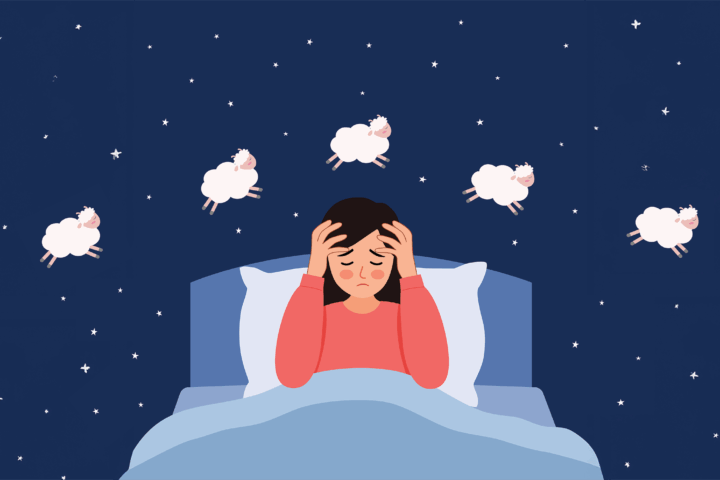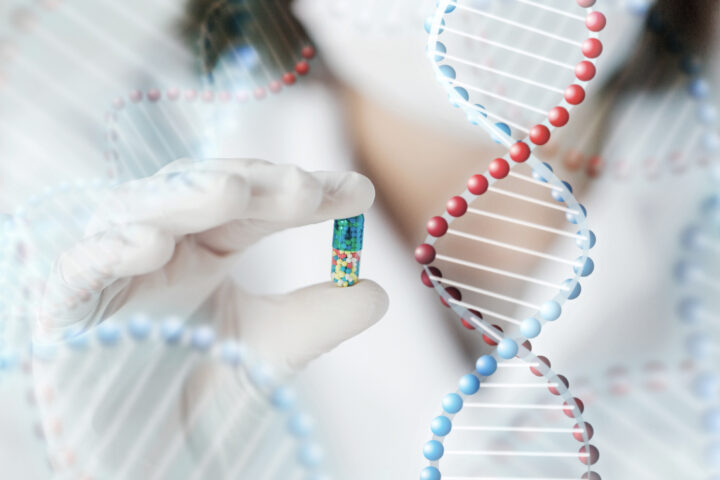Tuning Your Internal Clock: Why Circadian Rhythms Matter for Aging
At the heart of every cell is a ticking clock—a circadian oscillator that tracks roughly 24‑hour cycles. It coordinates everything from hormone pulses to DNA repair, metabolism to immune vigilance. Over time these clocks weaken and drift, and it’s increasingly clear that circadian disruption is more than a nuisance—it drives aging and limits longevity.
When the Beat Fades: Age‑Related Clock Deterioration
New reviews highlight the dual path: aging impairs circadian rhythms, and broken rhythms accelerate aging. That’s what Verma et al. (2025) emphasize—disrupted circadian function in animals shortens lifespan, while interventions like meal timing and exercise can help reset cellular clocks and extend healthspan.
Recent minimal‑model work shows that aging reduces light responsiveness and sympathetic input to clocks, slowing re‑entrainment after disturbances like travel or shift work. The feeding‑fasting cycle emerged as a powerful lever for restoring rhythm resilience in older organisms.
Metabolism, Sleep, and Redox: The Many Roles of Your Clock
Frontiers in Aging published (spring 2025) a deep review connecting sleep, redox metabolism, and mitochondrial health: poor sleep increases reactive oxygen species, impairing neuronal energy, while oxidative stress disturbs sleep architecture—a vicious aging feedback loop.
And Dong et al. (2025) summarized that proper clock function is critical for metabolic health and delaying age‑related decline—tying together circadian regulation with glucose homeostasis and longevity pathways.
Human Studies: Clock Tracking to Menopause and Beyond
A fresh study using the “TimeTeller®” platform examined gene expression, hormone rhythms, and chronotypes in healthy subjects, showing how deeply clocks permeate physiology. Emerging data suggest that clock signature variances may be predictive of aging trajectories in individuals.
Malhan et al. (2025) investigated menopause and found that declining estrogen disrupts circadian regulation—worsening sleep, mood, thermoregulation—and likely contributes to accelerated biological aging in women during that transition.
Interventions That Reset: Eating, Drugs, and Sleep Hygiene
Time‑Restricted Eating (TRE)
Satchidananda Panda’s research continues to show that aligning calorie intake to a consistent 8–12 hour window—not reducing calories—improves weight, blood sugar, and markers of metabolic syndrome in humans and mice. It’s a simple circadian hack: sync your clock by feeding at the right time.
Pharmacological Tools
Rapamycin, the same compound in the tranquility drug rapalog family, is under study for delaying menopause by ~5‑years by slowing ovarian tissue aging. That hormonal preservation may ripple out to enhance overall healthspan.
Meanwhile, experimental chronopharmacological compounds are being explored to chemically strengthen clocks and combat obesity, Alzheimer’s, and metabolic disease.
In cell studies, resveratrol (yes, the red‑wine polyphenol) modulates circadian gene expression in young vs older human cells—suggesting possible clock‑based rejuvenation pathways.
Real‑World Sleep Practices for Longevity
Dr. Gary Small, a longevity psychiatrist, recently spotlighted five sleep habits that can add years to life—emphasizing consistency, bed‑only for sleep, cool and dark rooms, abstaining from late caffeine or alcohol, and winding down gently before bed. Good sleep aligned with natural rhythms may add 2.4–4.7 years of life expectancy.
Connecting the Dots: From Jet‑Lag to Dementia Risk
Chronodisruption—shift work, late‑night screens, social jet‑lag—is clearly harmful. It’s classified as a probable carcinogen in humans, linked to higher rates of breast and prostate cancer, CVD, metabolic syndrome and neurodegenerative disease.
Rodent experiments simulating jet-lag or shorter light cycles led to heart disease, obesity, impaired cognition, and shortened lifespan—sanity check: your biological clock hates chronic midnight scrolling.
Why the Clock Is a Longevity (Game) Changer
- Evolutionary legacy: Across species—from algae to mammals—circadian misalignment reduces lifespan. These rhythms are ancient guardians of cellular timing and health.
- Central + peripheral coordination: Aging weakens the coupling between the master clock and tissue clocks—so resetting one without the other may leave you half‑zoned out.
- Cross‑system impact: Clocks modulate metabolism, redox balance, hormone signaling, repair cycles, immune surveillance, and even psychological resilience. When they falter, it’s not just insomnia—it’s a multi‑system slowdown.
What This Means for You (Without the Snack‑Sized Advice)
- Prioritize consistent sleep and timing: Sleep and meal rhythms are not optional—they’re longevity anchors.
- Consider TRE, especially if you’re insulin‑resistant or carrying extra abdominal fat. It’s a circadian‑friendly way to eat.
- Be cautious with artificial light after sunset—blue light suppresses melatonin and can weaken rhythms over time.
- Watch innovations in clock‑strengthening drugs—compounds like rapamycin or resveratrol analogs offer real promise, though human trials are still evolving.
- Women navigating menopause should know that hormonal shifts are circadian disruptors; clock‑based therapies may soon become part of personalized longevity medicine.
Case Study Examples
- Rodent jet-lag models: Mice exposed to rotating light schedules had faster tumor progression, obesity, heart problems, and died earlier. Real clockwork meltdown.
- Human TRE trials: Adults with metabolic syndrome ate in a 10‑hour window and saw reductions in abdominal fat, blood pressure, and glucose—even without calorie reduction.
- Sleep quality studies: In older adults, good sleep patterns correlated with 2.4‑4.7 more years of life expectancy—deep sleep clears amyloid, lowers inflammation, preserves cognition.
- Rapamycin ovarian aging: In preclinical work, treated rodents delayed menopause onset by ~20%, suggesting clock‑hormone interplay is key in female longevity.
The Takeaway
Your circadian system is like a multi‑instrument orchestra: when instruments drop out or fall out of tune, the symphony of cellular life falters. Aging is the conductor that gradually loses grip—but smart timing, lifestyle tweaks, and emerging therapies are helping the orchestra stay in harmony longer.
By treating your clock not as a nuisance but as a regulator of timing across health and longevity, we’re entering a new era: chronobiology is not just about sleep—it’s about life’s rhythm. Set the beat right, and maybe you stay in time much longer.
References
- Dong Y., Lam S., Li Y., Li M-D., Shui G. Journal of Genetics and Genomics (2025). The circadian clock at the intersection of metabolism and aging – emerging roles of metabolites. https://www.sciencedirect.com/science/article/pii/S1673852725001237
- Mir Fayaz A. , Lark Arianna R. S. , Nehs Christa J. Frontiers in Aging (2025). Unraveling the interplay between sleep, redox metabolism, and aging: implications for brain health and longevity, 4, Article 1605070. https://www.frontiersin.org/articles/10.3389/fragi.2025.1605070/full
- Malhan, D., Yalçin, M., Liedtke, S. et al. A prospective study to investigate circadian rhythms as health indicator in women’s aging. npj Womens Health. https://www.nature.com/articles/s44294-025-00057-z
- Nelson, N., Malhan, D., Hesse, J. et al. npj Biological Timing and Sleep (2025). Comprehensive integrative analysis of circadian rhythms in human saliva. https://www.nature.com/articles/s44323-025-00035-3
- Hayward J. (2025). 5 sleep habits that will help you live longer, according to a longevity expert. Interviewed by Tom’s Guide. https://www.tomsguide.com/wellness/sleep/i-asked-a-longevity-expert-how-to-live-longer-these-are-the-5-sleep-habits-he-swears-by
- Huang, Y., Zhang, Y., Braun, R. arXiv preprint (2025). A minimal model of peripheral clocks reveals differential circadian re-entrainment in aging. https://arxiv.org/abs/2212.13579
- TimeShifter. (2023). Circadian Rhythms and Longevity: A Biological Blueprint for Healthspan. https://www.timeshifter.com/circadian-rhythms/circadian-rhythms-and-longevity
- Verma, A., Singh, S., & Rizvi, S. Circadian clock and its effect on aging and lifespan (2025). Biogerontology. https://pubmed.ncbi.nlm.nih.gov/40576851/
- Vox. (2025). We Have a Drug That Might Delay Menopause — and Help Us Live Longer. https://www.vox.com/future-perfect/366397/longevity-research-menopause-geriatric-pregnancies-rapamycin-aging
- Wired. (2019). Drugs That Boost Our Circadian Rhythms Could Save Our Lives. https://www.wired.com/story/drugs-could-control-circadian-rhythms-save-our-lives
- Wikipedia. (2025). Chronodisruption. Retrieved from https://en.wikipedia.org/wiki/Chronodisruption
- Wikipedia. (2025). Satchidananda Panda. Retrieved from https://en.wikipedia.org/wiki/Satchidananda_Panda
- Aging Press Release (2024). Effects of Resveratrol on Circadian Clock Gene Expression in Young and Older Human Cells. Aging (Albany NY). https://www.aging-us.com/news-room/Effects-of-Resveratrol-on-Circadian-Clock-Gene-Expression-in-Young-and-Older-Human-Cells












